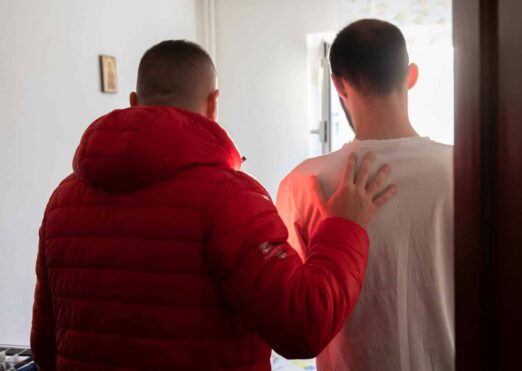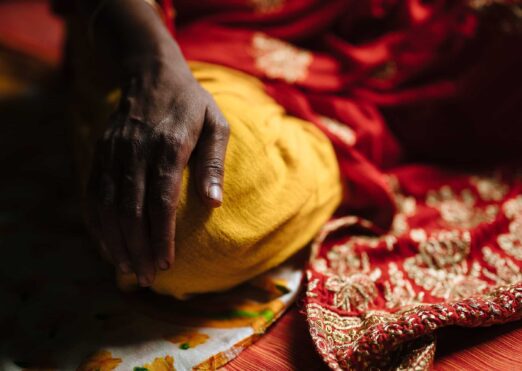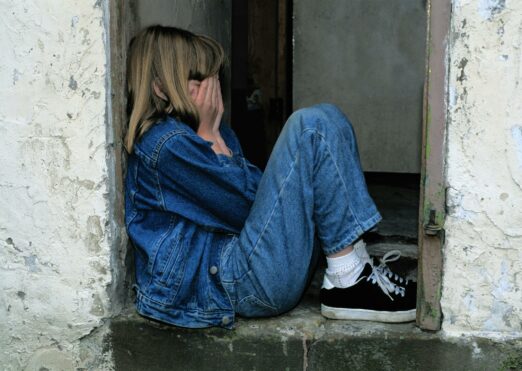BBC documentary shines light on modern slavery case that went undetected by big UK companies
September 30, 2024
A new documentary on the BBC has showcased how the brutal exploitation of 16 modern slavery victims – many of whom Justice and Care have been supporting – went undetected in the UK for years.
This is despite the group being forced to work, among other places, at a McDonald’s branch and a factory supplying bread products to major supermarkets.
You can hear directly from one man to whom Justice and Care has provided wraparound care to – in the BBC programme ‘Slavery on the High Street’. This show is available on iPlayer and will air at 8.30pm tonight on BBC One.
In May, the traffickers were convicted on all charges after one of our Navigators worked on the case in partnership with the Metropolitan Police and supported many survivors to give evidence.
However, big questions remain over why so many red flags – like victims working 70 to 100 hours a week and four people’s wages going into one bank account – were missed by the companies involved.
The gang – led by brothers Ernest and Zdenek Drevenak – targeted vulnerable homeless men and women in poor areas of the Czech Republic enticing them to the UK with the promise of work, pay and a better life.
The victims had their wages stolen, passports confiscated, and were subjected to violence and forced to live in squalor while working at a bakery and car wash in North London and a McDonald branch in Cambridgeshire. Other victims were subjected to sexual exploitation and domestic servitude.
The Met’s Det Insp Melanie Lillywhite. the gang ‘treated their victims like livestock’ while living in luxury – spending the hundreds of thousands of pounds they had stolen on luxury cars, gold jewellery and big parties.
Tobias*, one of the men who was exploited, told the BBC: ‘We obeyed like mules. We feared for our lives. We were like robots; if he said we had to do something, we did it.
‘They know how to manipulate people. They are professionals and they live off people like us… You felt like you were going to prison [while travelling to work], that you had to do it. You get no reward and he takes all the money, you don’t even get a pound.’
Pavel, a survivor who waived his legal right to anonymity for the documentary, said: ‘We were afraid. If we were to escape and go home, [Ernest Drevenak] has a lot of friends in our town, half the town were his mates… You can’t undo the damage to my mental health, it will always live with me.’
Appearing on BBC News to discuss the documentary this morning, James Clarry, Justice and Care’s CEO said: ‘There are some companies doing really good things, but unfortunately we [the UK] don’t go far enough. In this case, we saw a McDonald’s plus a number of supermarkets who weren’t asking enough questions about what was happening in their supply chains.
‘In the UK, you can be legally compliant, even if you publish a statement to say you’ve taken no steps to address modern slavery. We just don’t go far enough. In the EU and around the world, there are lots of regulations that require our companies to complete full due diligence and failure to do so would lead to a penalty of 5% of their global turnover.
‘We do not have that in the UK. There isn’t a level playing field at the moment, and companies are required to do one thing under one law, and another thing under another. The UK could do a lot more and my advice is that if you work in a business, there are some red flags that you could learn from.‘
McDonald’s told the BBC it commissioned an independent review in October 2023 and had taken action to improve its ability to ‘detect and deter potential risks, such as: shared bank accounts, excessive working hours, and reviewing the use of interpreters in interviews’.
The bakery company – Speciality Flatbread Ltd – ceased trading and went into administration in 2022. Statements from the supermarkets who used the company can be read here.


